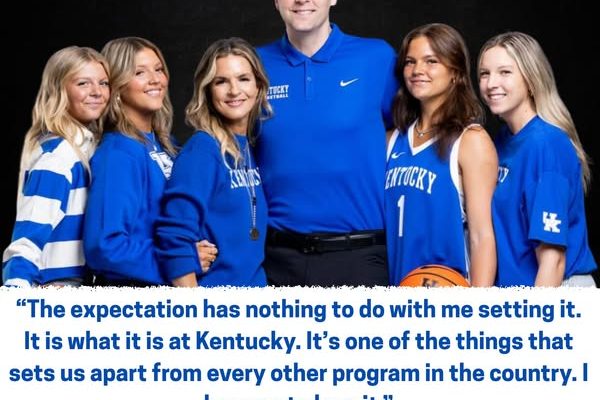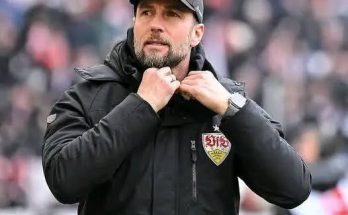Mark Pope says he doesn’t have to worry about setting expectations at Kentucky. The expectations are already there. This simple yet profound statement captures the essence of coaching at a storied basketball program like the University of Kentucky, where tradition, history, and fan anticipation create a unique environment that transcends the usual challenges of college basketball. To understand why Pope feels this way, it is essential to delve deeper into the Kentucky basketball culture, the pressures and privileges of coaching there, and what this means for the team and the sport moving forward.
Kentucky basketball is not just any college program. It is a beacon of basketball excellence with a legacy built on decades of success. From legendary coaches like Adolph Rupp and Rick Pitino to more recent icons like John Calipari, Kentucky has been a cradle of talent, producing NBA stars, national champions, and thrilling fans with its fast-paced, relentless style of play. This rich history has created a standard that every coach stepping onto the court in Lexington must acknowledge—an expectation to win, to compete at the highest level, and to do so with a certain flair that embodies the spirit of the program.
Mark Pope’s acknowledgment that he does not need to set expectations means he is stepping into a role where those expectations are pre-installed by the program’s history and fan base. The University of Kentucky does not need its coach to tell players or fans what to hope for because the culture itself demands success. This culture is built on winning championships, making deep NCAA tournament runs, and developing players who can excel at the professional level. The weight of this expectation can be daunting, but it can also be liberating for a coach who understands the power of the tradition behind him.
Pope took over the Kentucky program following John Calipari, whose tenure was marked by extraordinary success, including multiple Final Four appearances and a national championship. Calipari’s reputation as a developer of NBA talent brought recruits who wanted a fast track to the league, further elevating expectations at Kentucky. When Pope arrived, he inherited not only a talented roster but also a fan base hungry for continued excellence. This dynamic creates an environment where the pressure is omnipresent, yet the pathway to success is clear. The goal is always the same: win games, win championships, and uphold the standard of Kentucky basketball.
What makes Pope’s position unique is how he chooses to approach this pressure. By stating that he doesn’t have to worry about setting expectations, Pope implicitly recognizes that his job is not to create the standard but to meet and exceed it. This subtle shift in mindset is crucial because it frames his role as a steward of tradition rather than an architect of a new vision from scratch. He is managing a legacy, ensuring that the momentum of Kentucky basketball continues without interruption. For a coach, this is both a challenge and a privilege — the challenge lies in maintaining high performance; the privilege lies in leading one of the most prestigious programs in college basketball.
Kentucky’s basketball expectations extend beyond just winning games. They also involve a commitment to player development and a style of play that excites fans and intimidates opponents. The Wildcats are known for their aggressive defense, high-octane offense, and an emphasis on teamwork and hustle. These are not just coaching directives but elements deeply ingrained in the identity of Kentucky basketball. Pope’s role is to embody and reinforce these traits while also bringing his own style and personality to the team. His ability to do this successfully will define his tenure and how he is remembered within the Kentucky basketball narrative.
Another factor contributing to the already existing expectations is the media and fan scrutiny that surrounds Kentucky basketball. Every season, the Wildcats are under the microscope. From the moment recruits commit to the program to the final buzzer of the NCAA tournament, fans, analysts, and commentators dissect every detail. The pressure on players and coaches alike is intense, but it is part of what makes Kentucky a national powerhouse. For Pope, this scrutiny means he does not have the luxury of gradual rebuilding; instead, immediate competitiveness is expected. This pressure cooker environment requires a coach to be mentally tough, strategically savvy, and highly communicative with his players.
The expectations at Kentucky also impact recruiting. Because the program is so prestigious, recruits come in already aware of the program’s demands and legacy. They know what it means to wear the blue and white and what is expected of them both on and off the court. This reality allows Pope to focus on selecting players who are not just talented but who also possess the mental fortitude and character to thrive in a high-pressure environment. His ability to recruit and develop such players will be essential to sustaining Kentucky’s tradition of excellence.
In addition to the internal pressures, Pope also faces external challenges such as the evolving landscape of college basketball. With changes like the transfer portal, name, image, and likeness (NIL) opportunities, and shifting conference dynamics, maintaining a consistent level of excellence is more complex than ever. These factors add new layers to what it means to meet the expectations at Kentucky. Pope must be adaptable, innovative, and proactive in navigating these changes while ensuring his team remains focused on the ultimate goal: winning at the highest level.
The fan base is another crucial element in the expectations already set at Kentucky. Wildcats fans are known for their passion, loyalty, and high standards. They have witnessed greatness and therefore expect it to continue without compromise. This relationship between the team and its fans creates a powerful ecosystem where the energy and support fuel the players and coaches. At the same time, this dynamic can be unforgiving when expectations are not met. Pope’s recognition that he does not have to set expectations underscores his respect for this fan culture and his understanding that meeting these expectations requires not just skill and strategy but heart and commitment.
Kentucky’s place in college basketball history also means that Pope has access to resources that many coaches can only dream of. The program’s financial backing, state-of-the-art facilities, and national recruiting reach give him tools to assemble competitive teams year after year. These advantages come with their own set of expectations to utilize them fully. Pope’s challenge is to leverage these resources effectively, balancing the pressure to win with the development of young athletes and maintaining the integrity of the program.
Furthermore, Pope’s statement reveals a deep awareness of legacy and continuity. Coaches who have come before him have set a high bar, and the program itself carries an intrinsic expectation of success. By not having to set expectations, Pope acknowledges that Kentucky basketball’s standard is already etched in the minds of everyone involved—from players and coaches to fans and media. This acknowledgment frees him to focus on the nuances of coaching: developing player skills, managing team dynamics, creating game strategies, and handling the psychological aspects of competition.
This mindset is crucial because it highlights that coaching at Kentucky is as much about stewardship as it is about innovation. While each coach brings their own philosophy and approach, the foundation remains the same—a relentless pursuit of excellence. Pope’s confidence in the pre-existing expectations allows him to concentrate on refining and enhancing the team’s performance rather than convincing stakeholders what the goals should be. This clarity of purpose is a significant advantage in the high-stakes world of college basketball.
Mark Pope’s approach to the Kentucky program also sends a message to his players. It tells them that they are part of something bigger than themselves, a legacy that demands respect and dedication. This awareness can be a powerful motivator, instilling pride and responsibility in the team. Players understand that the expectations are not arbitrary but stem from a tradition of greatness that they are charged with upholding. This sense of purpose is essential for building a cohesive, motivated team capable of achieving remarkable success.
At the same time, Pope’s acknowledgment that he does not need to set expectations does not mean complacency. On the contrary, it implies a constant vigilance and commitment to meeting those high standards. Expectations at Kentucky are not a static concept; they evolve with the game and the program. Pope’s role includes pushing the team to adapt, improve, and innovate within the framework of tradition. This balance between honoring history and embracing progress is delicate but necessary for sustained success.
It is also important to consider how Pope’s statement fits into the broader narrative of college basketball coaching. Many coaches at programs without Kentucky’s level of tradition face the difficult task of building a culture and setting expectations from the ground up. In contrast, Pope’s role at Kentucky involves embracing an already established culture that carries immense weight. This difference highlights the unique pressures and opportunities that come with coaching at a blue-blood program. It also illustrates how a coach’s success is often intertwined with their ability to navigate the legacy they inherit.



